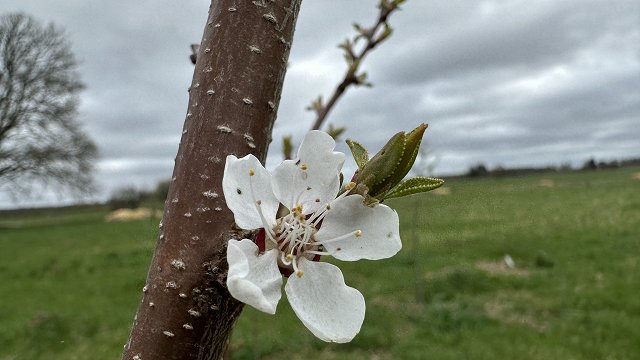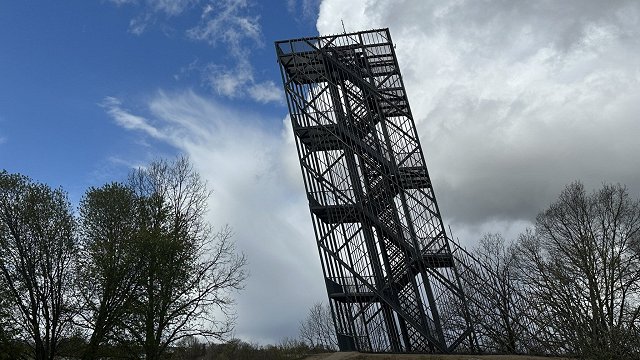Many farmers will try to re-seed the parched fields, but they may not think about profits this season - this will be more a year of survival.
Farmer Mārtiņš Pētersons said in the 25 years of the farm's existence, no such situation has ever been experienced. About 90% of the 40 hectares of rapeseed have frozen.
"There was a big thaw in February, then the ground started to thaw - about 10 centimeters, then it froze again. Between the freezing and thawing, the roots of the rapeseed could not understand what was happening," explained Pētersons.
"Here, it came out easily! The root is brown, and then it is quite safe to say that it is dead," the farmer showed the damage.
This will be a difficult year for owners of rapeseed fields, the Latvian Rural Advisory and Training Centre (LLKC) has said. The situation was similar but less dramatic 10 years ago.
"In places where there was no snow cover - in Zemgale - 70%-80% of winter wheat and rape froze. Farmers there replanted everything," said Andris Skudra, a crop expert at the LLKC.
Last year, 411,000 hectares were sown with oilseed rape in Latvia, and this year it is likely that a large part of the fields will have to be reseeded.
"If the grain is reseeded, maybe they will get back the expenses they have invested, but now... maybe if it grows very well, it will be a small plus. There will be no big plus from reseeding," said Pētersons.
The cost for this farmer is high - around €12,000 to sow rape in autumn. Now there is nothing he can do but reseed the fields with spring wheat, which will cost the farm another eight thousand euros.
"If there is a chance of warmer weather and a stabilization of the soil moisture regime, they will try to chase these offshoots from dormant buds, but the yield drop will of course be significant," predicted Andris Skudra.
Farmers in Kurzeme and Zemgale are already starting to prepare the soil for spring sowing and could start in the last week of March or early April, while in Vidzeme and Latgale sowing could start in the first or second week of April.


























